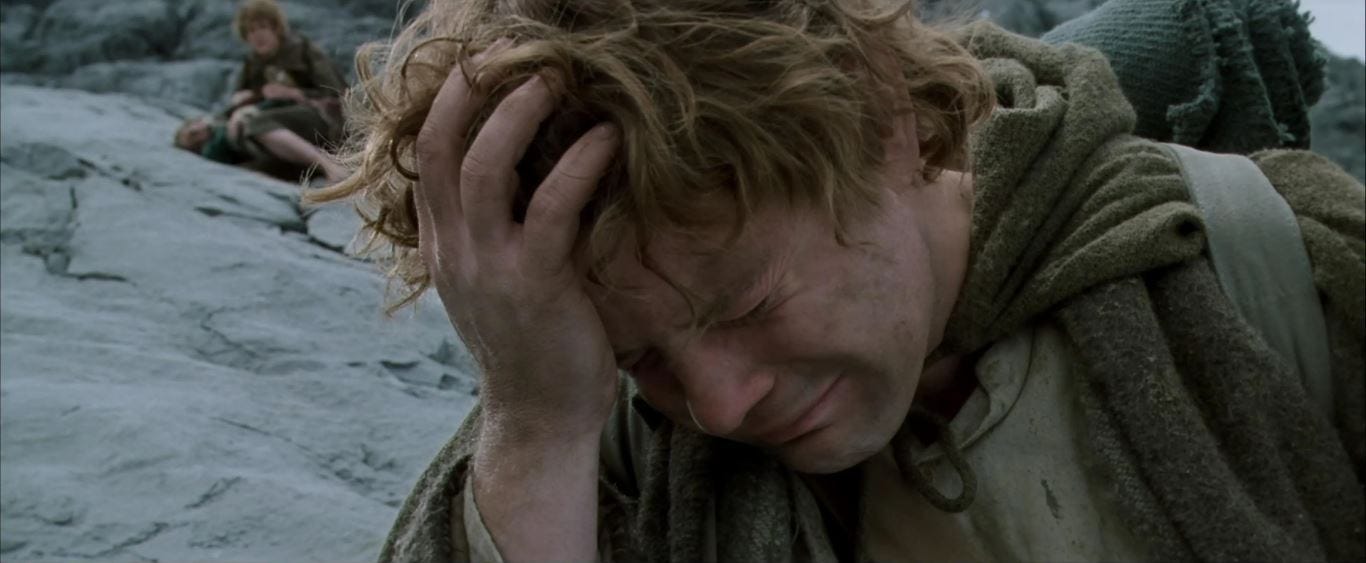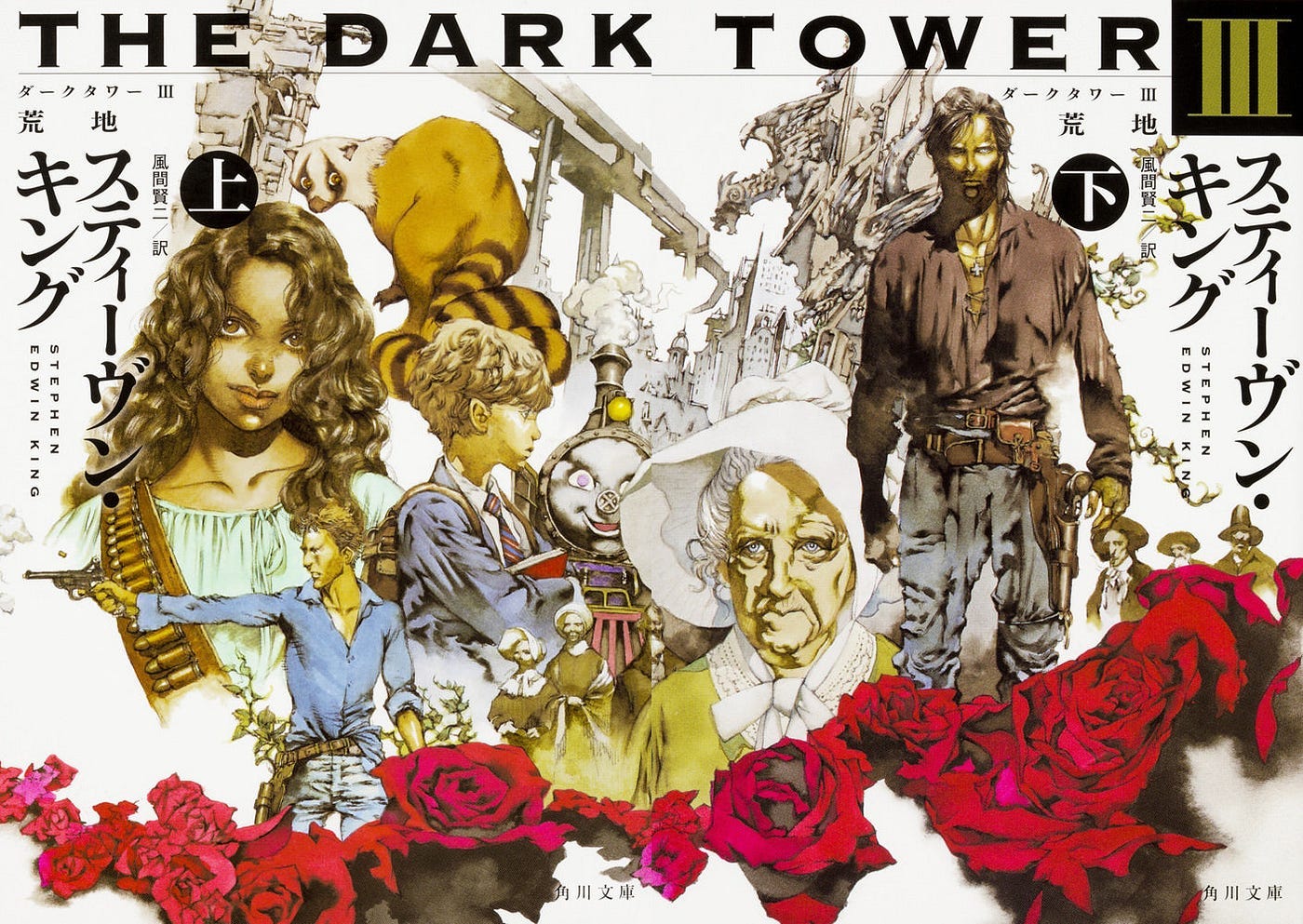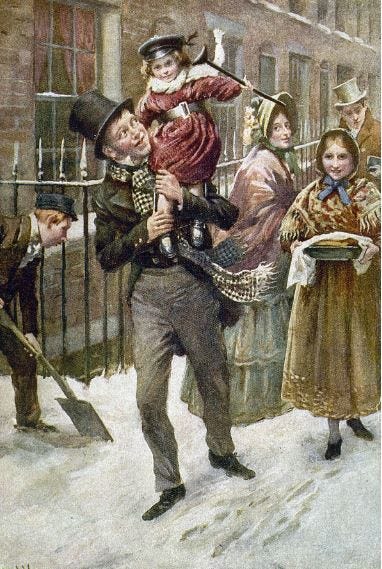These Books Changed My Life
5 valuable lessons for creative workers
Happy Thursday!
Thursday has always been my favorite day of the week. I can’t tell you why. Maybe my child’s heart that always wanted to support the underdog thought the random day didn’t get enough love? Maybe it’s that perfect time in the week where I feel like I’m in a good groove with work but the weekend is in sight? Chime in the comments if you have any ideas why we pick favorite days of the week, lol.
Regardless of if Thursday is already your favorite day or not, Charles Rodriguez is here with another “5 Lessons” article to make your day even better. Get ready to dive into the world of books with us!
Cheers,
Ceylan (OBA Studios Editor-In-Chief)
We want to share your story in our newsletter!
5 Valuable Lessons For Creatives I Learned From Books
Art has so much wisdom to pass onto us–and is always made by people just like you. These are creeds, philosophies, and proverbs that can guide every creative through their daily hardships. This list could go on forever, but, for now, here are five lessons from the artistic medium of novels to think about.
Things Get Worse Before They Get Better (And That’s Okay).
I could write all day about this novel that saved my life back when I was a university student: The Brief Wondrous Life of Oscar Wao by Junot Díaz. The unusually constructed and epic story is not for the faint of heart. The saga of the De León family, as chronicled by Yunior (the titular character’s dearest and complicated friend) makes for one of the most heartbreaking, brutal, and mean-spirited narratives I have ever read. Díaz makes perfectly clear that we Hispanics are a cursed people, and we are well and truly screwed in this life–extra suffering for those like Oscar and me who can get into deep, extended conversations about the Planet of the Apes series. The novel can be downright hopeless.
Yet, despite always having been a slow reader, Oscar Wao remains the only book whose first 76 pages I read in one sitting. This gluttonous reading came from the story also being soulfully compassionate and honest to an uncompromising degree. As a result, this book transformed me by getting me to acknowledge that I secretly hated myself for being Hispanic. Then, the book told me that, in fact, being Hispanic made me beautiful. Such a momentous compliment comes, well, almost never.
However, before getting to that sublime victory, I had to endure this difficult narrative, and most of the time I did not believe there would be anything positive left on that final page. In retrospect, I shouldn’t have been surprised the novel was going to be painful because of the prologue. There, setting the tone of the book, Yunior tells the reader he is writing his shared history with the De Leóns so their “curse” can be broken. He says the task will be difficult, but he must do so. “But if these years have taught me anything it is this: you can never run away. Not ever. The only way out is in.” What a phrase.
Being creative is going to be agony. Brainstorming, researching, crafting, marketing: it’s like we cursed ourselves to suffer marathons of set-backs, negative self-talk, and constant uncertainty when a standard 9-to-5 job could release us. The truth is that we make art to try and save ourselves from the darker things inside of us, even before impacting others. But salvation is a challenging process, and we must not mistake experiencing pain for making mistakes.
When your art is making you hurt so much, take heart knowing opening yourself up through your work is the only way to heal yourself and help others do the same. When creating, the only way out of yourself is in through yourself.
A Great Leader Knows and Respects Their Crew.
At the start of On Basilisk Station, the first installment of David Weber’s outstanding military sci-fi series, Honor Harrington, readers are shown what can happen when they are forced to follow poor leaders. In a far-off future and galaxy, Honor Harrington at last commands her own military starship, the Fearless. For a popular training exercise, her ship is surprisingly and forcibly retrofitted with an experimental weapon her bureaucratic superiors want to show off. Inevitably, the weapon’s obvious inadequacies are embarrassingly revealed at the expense of Honor and her crew’s reputation (the top brass are never to blame, after all).
Thus, as penance for her leader’s blunders, Fearless is outcast to oversee a lowly space station, Basilisk, above the unattractive planet Medusa. Any hopes for meaningful, noble service are dashed away, and the crew blames Honor for their seemingly murdered careers. But Honor does not wallow in self-pity nor reprimand her crew for their subtle insubordinations, as they deserve. Instead, she analyzes their situation, gets to know her crew mates, understands their strengths, and assembles them so that they all not only make the best of their tedious situation, but exceed expectations. In no time, the Fearless crew has their post’s operations running like flawless clockwork, strengthening their bludgeoned careers. Greater, Honor’s crew realize how wrong they were for mistreating their commander and become fiercely loyal to her, especially as she shows them their capabilities–necessities when their routine mission turns unpredictably dangerous.
You cannot be a good commander if you misunderstand your crew, or think only of yourself. If you are the boss of a creative venture, always know the only way you and your followers will survive the unexpected and frustrating challenges that will come your way is to know them. Who are they really, when not answering your directions? What stake do they have in your creative project? What are their strengths and weaknesses, and how can you apply them, like a master chess player, to overcome obstacles? How can you work together to turn problems into solutions? These are questions you need to ask yourself if you are to succeed as a creative worker in charge of a project. Otherwise, your life is going to get a lot harder.
The secret to your success? Do what Honor did: see the best in your crew, and, by not taking anything personally, see situations from their level. Always have the perspective that you are stuck at your metaphorical Basilisk Station, and glory is obtained by showing your fellow creatives you are all united in your mission together. You will be surprised how many hearts open up to you.
It’s Okay to Cry.
Anyone who knows me knows how much I adore J.R.R. Tolkien’s Middle-earth stories, particularly his Lord of the Rings trilogy. For those unfamiliar, Tolkien’s high fantasy epic, set in the medieval and magical world of Middle-earth, tells of the heroic quest to the hellish land of Mordor to destroy the malevolent One Ring of Power and defeat the Dark Lord Sauron–a foolish hope of mission doomed to failure. The grand tale also includes the war between the monstrous, conquering forces of Sauron and the Free Peoples of Middle-earth, who are hopelessly outmatched against their enemy.
The heroes of The Lord of the Rings face stakes that would break anyone’s spirit. If they fail, their friends and loved ones will be killed or enslaved, their homes ravaged beyond recognition. Everything good will be extinguished, and true evil will reign supreme until the end of time. Bravely, they try their best and constantly keep failing, making the wrong choices, running desperate gambles, and facing hopeless situations again and again. Every victory is barely achieved before our unlikely heroes are met with another chance at complete catastrophe. The stress the heroes face is palpable to the reader, and what do the characters do all the time?
They cry. Almost every hero in this story, more than once, cries from the panic, heartbreak, and suffering they are forced to endure. They do not always meet their foes and challenges with confidence in themselves and their power like Robert E. Howard’s mighty barbarian, Conan. Often, like any one of us would in their situations, they weep and lament openly, showing everyone around them–including the reader–their frailties. Yet, in doing so, they do not keep their anguish bottled up, and free themselves from negative thoughts. Instead, with clearer heads, they realize the friends and allies they have around them and the strength they have left inside them. They find the bravery to keep going and try again.
If you are reading this article, you are probably enduring too much stress, even if you are not a creative freelancer. Our world still believes that the strongest, best, and most successful people are those who show no weakness, always know what to do, and face challenges with a cool grin. But in reality, showing fragility is okay. Fragility is hope. You can be overwhelmed by overwhelming problems. Being honest about who you really are–a human capable of breaking down–can inspire others to no longer be afraid or ashamed of their stress-limits.
Crying doesn’t stop you from being successful. Beating yourself up does.
Knowledge, However Trivial, is Still Knowledge.
In The Wastelands, the third book that makes up Stephen King’s fantasy epic The Dark Tower, the cast of gunslinger heroes is faced with their strangest obstacle yet on their quest to reach the eponymous Dark Tower. Trapped in a desolate city of psychotic denizens, the party’s only option to escape is to board a monorail conducted by the sadistic and arrogant supercomputer, Blaine, who is about to release a gas it describes as “not painless” into the metropolis. The program will not let gunslingers onto its monorail unless they prove entertaining. The only thing Blaine likes anymore are riddles, one of which it offers the heroes to solve as payment for passage out of the city.
Except the gunslingers are totally stumped on the riddle. Time is running out before Blaine releases the apocalyptic gas. Then, one of the gunslingers, Susannah, noticing a keypad near the monorail’s station, realizes the answer to the riddle is an input code made up of the keypad’s prime numbers. The others are immensely unfamiliar or totally ignorant of the mathematical concept, and, without having any other ideas, they follow Susannah’s lead. Turns out, selecting those numbers on the keypad solves Blaine’s riddle. Just in time, too, because no sooner do the gunslingers rush onto Blaine’s monorail than that gas engulf the city.
Prime numbers! If Susannah did not remember this math lesson most of us forget by 7th grade, the gunslingers would’ve died! Thus are the heroes saved and emerges an unforgettable solution in an unforgettable book within a series that, in high school, helped save my life.
Creativity is built on observations of the world around us. Veteran creatives will always instruct novices to watch people, examine their surroundings, and seek out the truth around them. Such knowledge includes the little, disposable things most would call useless facts, meaningless trivia, or scholarly nuggets that would never be useful in the real world.
Great art is made up of our niche interests. The Dark Tower series itself is constructed by King’s daydreams of Sergio Leone’s westerns, Robert Browning’s poem Childe Roland to the Dark Tower Came, American folk and rock music, comic books, mysticism, and his own life. Be proud of the trivia you know, the interests you study, and the knowledge you have amassed, however inconsequential or unattractive such data may be to others. What you know can help you in the future or make your next project even better.
Your Greatest Accomplishments Will Outlast Your Greatest Failures.
Everyone knows Charles Dickens’ A Christmas Carol, one of my all-time favorite stories. The old, wicked miser of London, Ebenezer Scrooge, whose infamous greed and disdain for humankind have made rich, is haunted by 3 spirits who forced him to examine his past, present, and future…lest his immortal soul be damned to an endless, agonizing fate. Scrooge is so nasty towards others–judging them by their monetary value and mocking their belief in goodness and love–that he is a pariah. His villainy is so great that his name is an adjective for a selfish person to this day.
However, no one experiences Dickens’ story every December to enjoy the antics of a cruel man. Instead, they love to see Scrooge’s redemption once more. For, in the end, he does accept the lessons the spirits teach him and chooses to change his ways. Ultimately, Scrooge’s new acts of kindness and generosity erases everything he once was. Dickens writes: “He became as good a friend, as good a master, and as good a man, as the good old city knew.” People care about this story because of what Scrooge becomes, not what he starts out as. His salvation, his great goodness, changes the world.
As creatives, we fail all the time. Failure seems to come with the job like a clock face comes with two hands. When we struggle and fall on our faces, our failures scream at us louder than anything else. When our goals seem so far away and our disappointments right next to us, our creative identity can seem defined by our lowest days where all we have achieved is “a good idea,” or a compliment that we have “so much potential”.
However, despite all this fear and doubt, there is always an end to our projects, regardless of the suffering we endured to complete them. Admittedly, the final product may look different than what we first imagined. Yet, the only way to finish the work is to follow our best traits: determination, diligence, imagination, and goodness. Qualities we have within us that pushed us to start the project, but sometimes need to be called out once again. By the end of the marathon, you will have a final work to show for all your effort, and others won’t see the failures and struggle it took to create it. The gift of positivity is greater and lasts more than anything.
Despite how you might judge the outcome of your art, you will have grown into a different kind of creative whose past “failures” will become part of the story of your victory. What will matter is how your completed work affects others–and yourself. Like Scrooge, your greatest accomplishments will outshine and outlast your lowest moments as a creative, because you are so much more than those dark days. Never forget this fact: you would not be reading this article if you were past all hope.









